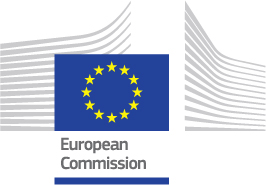Digital citizenship education and democratic participation
Course details
The Council of the European Union recommendation on key competences for lifelong learning identifies eight key competences essential to citizens for personal fulfilment, a healthy and sustainable lifestyle, employability, active citizenship and social inclusion. One of these eight competences is the Digital competence, while another one is the Citizenship competence. According to the framework of the key competences, the digital citizenship education is the answer to ¼ of the goals, which are at the heart of the European Education Area.
The ‘Digital Citizenship Education and Democratic Participation’ course aims to help teachers understand the concept of digital citizenship education and explore one of its domains – democratic participation in the digital environment. It will show how technology provides us with new tools for active participation in society on all levels – locally, nationally and globally, but will also make us question which are the positive and the negative traits in each of those tools.
The course draws attention to the role of the school in the development of competences, necessary for successful participation in democratic societies and presents key elements that teachers can include into their practice in order to help their learners become active and informed citizens. Teachers will also be able to explore issues that engage their learners and plan a learning activity that shows how to use technology to make their voices heard.
Although traditional online courses contain a lot of information and ready answers, this course is different. It is based on a reflective approach to learning and involves a dialogue between all participants of a learning process. The participants will be asked to use a learning diary that will help them learn from their past experiences, learn from each other, and turn surface learning into deep learning.
The course is offered by the European School Education Platform. Visit our website for more information.
Duration and workload
Start date: Monday 5 February 2024
End date: Wednesday 21 February 2024
Duration: 2 weeks
Workload: 8-10 hours
Course competences
The recipient of this certificate has demonstrated proficiency of the following competences according to the digital competence framework of the European Commission's SELFIE for TEACHERs tool:
- Professional collaboration B1 level
- Professional learning through digital technologies B1 level
- Teaching B2 level
- Self-regulated learning B1 level
For more information about the competences and the proficiency levels see the SELFIE for TEACHERs toolkit.
Target audience
Teachers from all school levels and subjects as well as other school staff (librarians, school leaders, etc.) who are interested in enhancing their knowledge on the field of Digital Citizenship and Democratic Participation.
Learning objectives
- Understand the overall concept of digital citizenship education by examining diverse approaches.
- Explore concepts related to the implementation of teaching democratic participation in the digital environment by engaging in discussions and sharing ideas with fellow educators.
- Develop confidence in effectively teaching democratic participation in a school environment by joining self-reflection activities and a peer evaluation.
- Design a learning activity focused on democratic participation in the digital environment, allowing you to apply the knowledge acquired during the course in your classroom.
This content is offered by the European Commission. The European Commission is the European Union's politically independent executive arm. It is alone responsible for drawing up proposals for new European legislation, and it implements the decisions of the European Parliament and the Council of the European Union.

Schedule
- How this course works
- Module 1 – Digital Citizenship Education – Introduction
- Module 2 – Understanding Participation
- Module 3 – Teaching Participation
- Module 4 – From Theory to Practice


